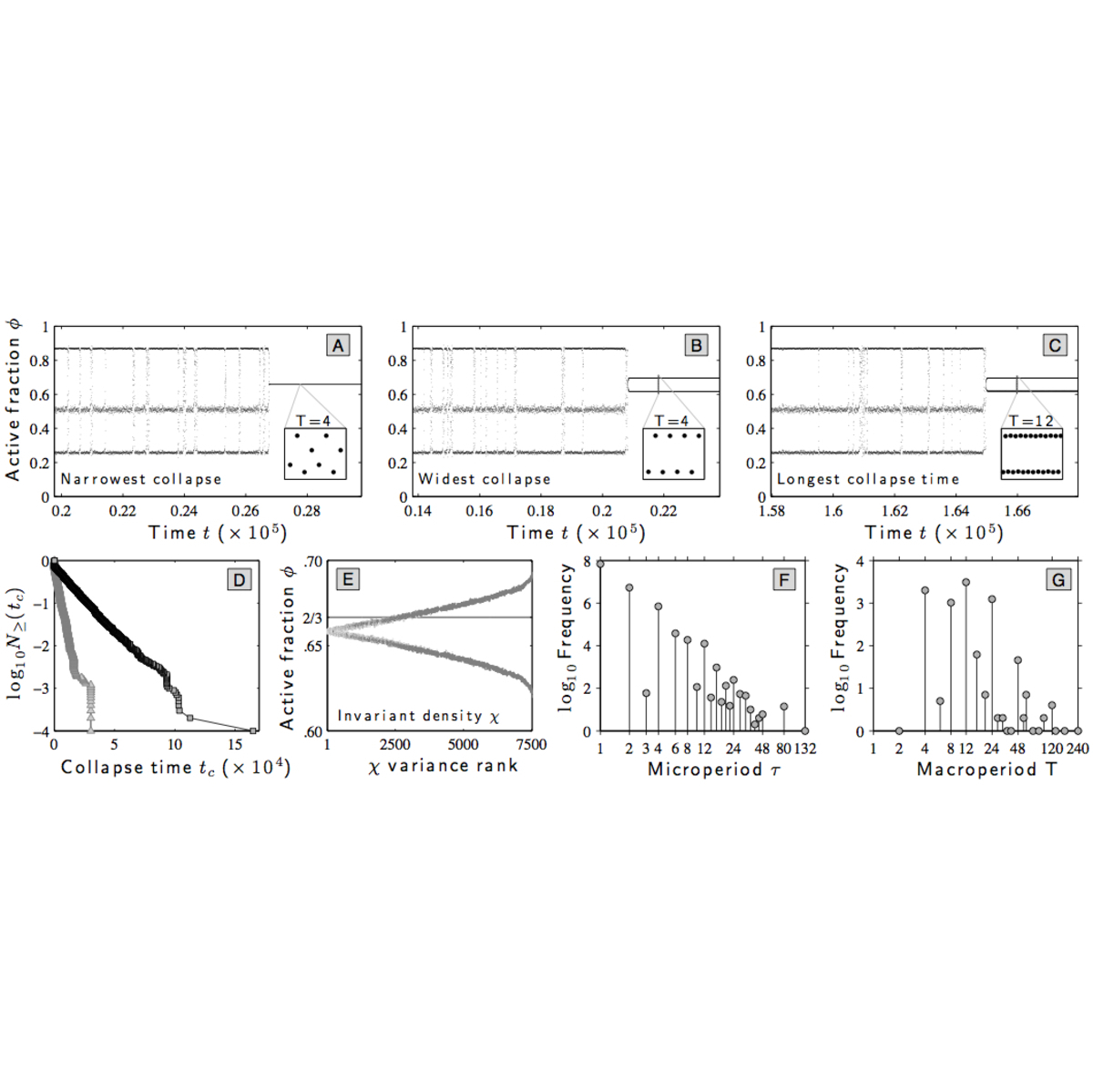Limited Imitation Contagion on random networks: Chaos, universality, and unpredictability
P. S. Dodds, K. D. Harris, and C. M. Danforth
Physical Review Letters, 110, 158701, 2013

Times cited: 48
Abstract:
We study a family of binary state, socially-inspired contagion models which incorporate imitation limited by an aversion to complete conformity. We uncover rich behavior in our models whether operating with probabilistic or deterministic individual response functions, both on dynamic or fixed random networks. In particular, we find significant variation in the limiting behavior of a population's infected fraction, ranging from steady-state to chaotic. We show that period doubling arises as we increase the average node degree, and that the universality class of this well known route to chaos depends on the interaction structure of random networks rather than the microscopic behavior of individual nodes. We find that increasing the fixedness of the system tends to stabilize the infected fraction, yet disjoint, multiple equilibria are possible depending solely on the choice of the initially infected node.
- This is the default HTML.
- You can replace it with your own.
- Include your own code without the HTML, Head, or Body tags.
Extra: This paper is covered in the 27th episode of the 6th Season of Complex Networks (2014); videos and slides available here.
BibTeX:
@article{dodds2013a,
author = {Dodds, Peter Sheridan and Harris, Kameron Decker and Danforth, Christopher M.},
title = {Limited {I}mitation {C}ontagion on random networks: {C}haos, universality, and unpredictability},
journal = {Phys. Rev. Lett.},
year = {2013},
key = {chaos,networks,contagion},
volume = {110},
pages = {158701},
}